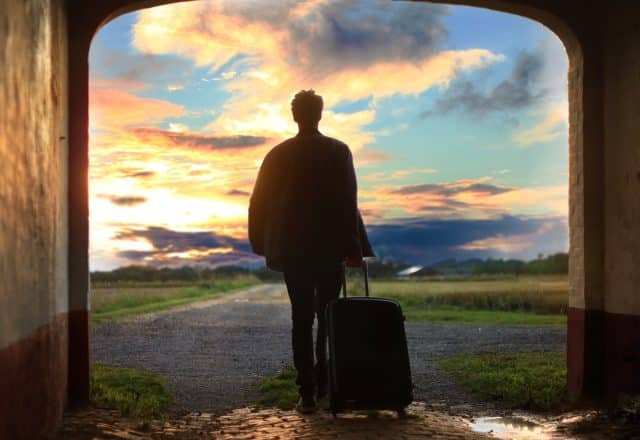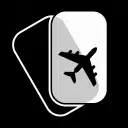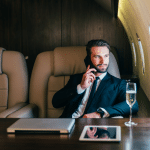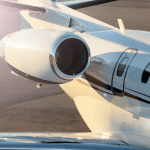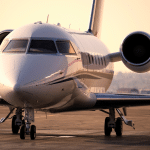Fear of Flying Statistics, Trends & Facts (2024 Data)
Have you ever experienced crippling anxiety at the thought of flying? Sweaty palms, nausea, and shortness of breath – this fear is known as aviophobia and it affects millions of people. But what if we told you there’s hope?
If you personally struggle with it or know someone who might need help in this area, this guide is for you.
Today, we’ll explore surprising flight statistics and offer helpful tips to overcome the fear of flying.
In This Guide:
What is Aviophobia?
How Common is Fear of Flying?
How Safe is Flying?
How to Overcome the Fear of Flying?
What is Exposure & Cognitive-Behavioral Therapy?
Tips and Advice on How to Deal with Fear of Flying
Take Control of Your Travels with Stratos Jets
What is Aviophobia?
Fear of flying or aviophobia is officially classified as an anxiety disorder. This disorder is sometimes called flight phobia, aerophobia, or flight anxiety. It is difficult to strictly define the term since it encompasses the fear someone experiences while flying, as well as the anxiety they feel in anticipation of an upcoming flight.
How Common is Fear of Flying ?
About 25 million people in the U.S. experience some form of anxiety when it comes to flying. This can significantly impact travel plans and life opportunities.
It’s important to note that this fear exists on a spectrum. For some, it might be mild pre-flight jitters, while for others, it can be a debilitating phobia (aviophobia) that prevents them from flying altogether.
Knowing how common the fear of flying is can be reassuring. It can help you realize you’re not alone and that there are resources available to help you manage your anxiety.
How Safe is Flying?
Flying can be an exciting adventure, but it’s natural to wonder how safe it really is. Statistics tell a reassuring story: Commercial air travel is one of the safest forms of transportation available.
Here’s a look at some data to put your mind at ease:
- Accident Rates Plummet: According to the International Air Transport Association (IATA), in 2022 there were only 5 fatal accidents out of 32.2 million flights. That translates to a minuscule accident rate of 0.000016%.
- Exceptional Survival Odds: Even in the unlikely event of an accident, your chances of survival are high. The National Transportation Safety Board (NTSB) in the US estimates a survival rate exceeding 95%.
- Safer Than Cars: You’re far more likely to be involved in a car accident than a plane crash. Dr. Arnold Barnett of MIT compared the risks, finding you’re 19 times safer flying than driving.
These statistics highlight the strong safety protocols in the commercial aviation industry. Continuous technological improvements, strict regulations, and well-trained pilots all play key roles in maintaining this impressive safety record.
How to Overcome the Fear of Flying
Fear and anxiety are real to those people who experience them. Is there something that you can do or some kind of pill you can take to make it all go away?
The answer is a bit more complex, but yes, aviophobia is something that can be managed and cured.
We would like to take this moment to mention the dangers of self-medicating or using alcohol or other drugs to “take the edge off” before flights. Those who experience fear of flying might actually make the situation worse by choosing to get drunk before or during a flight. And taking medication might have adverse side effects.
Having to take a long U.S. coast-to-coast flight from New York to LA is a nightmare for those who have a fear of flying, so downing a few whiskey shots might seem like a great idea. Yet, the reality is that by doing this, you are not treating the causes of your anxiety (and getting better). Rather, you are just dulling your senses and altering your reality.
Anxiety medication can help alleviate some of the fear and anxiety, yet it plays no role in improving the long-term condition of those scared of flying.
The most common tool used by therapists and psychologists to treat different types of phobias is exposure therapy. Aviophobia is no different. Exposure therapy, combined with cognitive-behavioral therapy, is still the best way to manage and overcome anxiety about flying.
What Is Exposure & Cognitive-Behavioral Therapy?
Exposure therapy is a technique used in behavioral therapy to treat anxiety disorders. It involves exposing the subject to the source anxiety in a safe environment, under the clear perception that he/she will not actually experience any harm. When people who have a fear of flying are regularly exposed to stimuli that trigger anxiety and fear (and they have to simply face the fear) their brain slowly changes its response to these stimuli.
The application of exposure therapy to a variety of anxiety disorders and phobias has been a success. But it requires highly-trained professionals to administer it, as well as plenty of time for the therapy to work. There are no quick solutions to the problem of fear and anxiety on a plane.
When it comes to cognitive-behavioral therapy and how it relates to fear of flying, the story is quite similar. While people find that they do not have a say in whether they will experience fear and anxiety during a flight on a plane, with the help of cognitive-behavioral therapy they might find a way to retrain their response to those triggers (and the oncoming anxiety and fear).
This is what cognitive-behavioral therapy does. It trains our brain to respond to certain stimuli, environmental factors, and triggers.
A patient with a fear of flying is put in a series of scenarios that resemble the factors and environments that activate their phobia. Then they are introduced to techniques that can help them associate those triggers and factors to more pleasant and manageable experiences.
It is not a linear process, and the progress between subjects may vary a lot, but most of the subjects show great improvement.
Tips and Advice on How to Deal with Fear of Flying
While exposure and cognitive-behavioral therapy are quite effective, they might not be an option for many people. Whether it is the lack of time, funds, medical coverage, or availability of trained therapists, it might be difficult for everyone to take the medically recommended route to deal with anxiety on a plane. What are some other things that might help in those situations?
The airline industry puts a lot of effort into training its personnel to deal with situations that might arise on the plane.
Flight attendants are well aware of aviophobia. They have already dealt with people who experience fear and anxiety on a plane. If you are one of those, it might not be a bad idea to inform a flight attendant, once you board the plane, that you have trouble flying and experience anxiety. The flight crew will reassure you of the safety of the flight, as well as pay close attention to your mental state during the flight, or provide you with some breathing exercises that might help.
In addition to that, finding a distraction during stressful periods on a flight (such as turbulence, takeoff, and landing) could prove to be beneficial. If you are focused on reading your book ormagazine, watching a movie, listening to music, or playing a video game, you are less likely to pay attention to the triggers that might make your anxiety worse. The goal is to feel like you are somewhere else, rather than on a plane.
We have already mentioned that it is a bad idea to self-medicate before or on the flight.
If your anxiety is quite mild, and a drink or two on a flight might get you more relaxed, or perhaps help you sleep on a long flight, go ahead. Yet, if you find it almost impossible to step foot on a plane without taking medication or being intoxicated, it is best to avoid it altogether due to potential side effects and your safety on the flight.
Take Control of Your Travels with Stratos Jets
At Stratos Jet Charters, we understand that flying can be stressful for some people. That’s why we offer a private jet experience unlike any other, designed to make even the most apprehensive flier feel comfortable and relaxed.
Private jets offer a more intimate and serene environment compared to busy commercial flights. You’ll have ample space to stretch out, relax, and avoid the crowds.
Our team is also committed to providing exceptional care from the moment you book your flight until you reach your destination. We’ll handle all the logistics, so you can focus on enjoying the journey.
Book your flight today!
Are you ready to book your Denver and Las Vegas charter flight yet?
Our friendly, expert air charter agents are here to answer questions or start your quote today. Don`t wait, call now and we'll get you on your way to your destination!
Call 888-593-9066